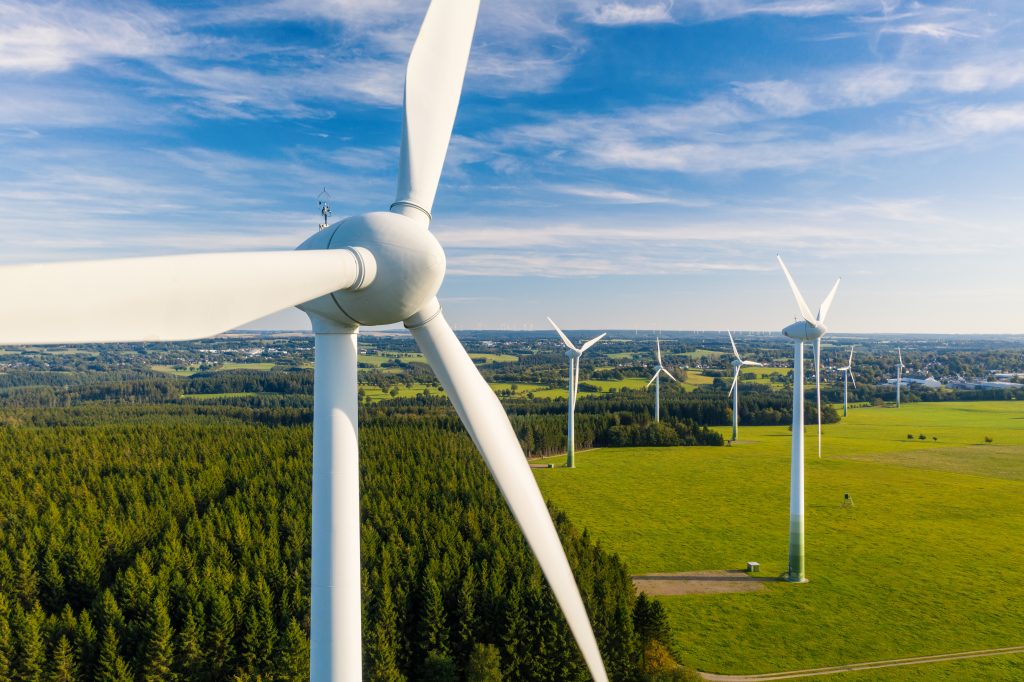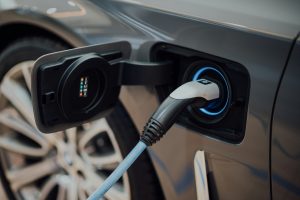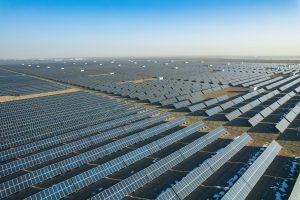Revisiting the case for investing in renewable energy

The shift towards cleaner, more sustainable energy sources is well underway and gaining strength. Across much of the world, renewables remain one of the most cost-effective ways to generate new electricity. And with rising demand for energy independence and supply chain resilience, the strategic value of renewables is clear.
While the sector has faced some recent headwinds—from evolving government policies to the lingering impact of the pandemic—many of these challenges are beginning to ease. At the same time, the fundamentals underpinning the case for renewables remain robust and, in several areas, are improving.
We see four key factors shaping investor sentiment in the
Renewable energy
- Renewables are among the most affordable new power sources globally.
- Their localised nature strengthens energy security as global supply chains shift.
- Cost and interest rate pressures are stabilising, bringing relief to company margins.
- Despite political uncertainty in some markets, renewables remain a practical, scalable solution for the future.
1. Still the cheapest source of new power
The cost of solar continues to fall, helping it remain the most affordable way to generate new energy. 1 While the exact cost advantage varies from country to country, solar installations are growing rapidly around the world. In 2024 alone, there was over 500 gigawatts of new solar capacity added — around 30% more than in 2023, and enough to power around 160 million homes. 2
A major factor in the falling cost of renewables globally is China’s strong manufacturing capability. On average, China can produce electricity from leading clean energy sources at costs that are 11-64% lower than in other countries. 3 This helps bring down the price of clean energy in China and around the world.
The momentum of renewable energy production isn’t limited to China, though. In the US, Texas — a state long known for its oil and gas industry and a deregulated energy market — is seeing a shift. Over the past five years, for every megawatt of new oil and gas capacity added to Texas’s main grid, 12 megawatts of wind and solar have been installed. 4
And although clean energy technologies have improved significantly over the last few decades, there’s still room for further technological efficiencies. The global cost of renewables is expected to continue to fall by a further 2-11% in 2025. 5
You might also like: China’s green shift: understanding the complexity, engaging with the opportunity
2. A powerful case for energy independence
Wind, solar and
Battery storage
Unlike oil, renewable resources are more evenly distributed across the world, allowing countries to produce more of their own energy locally. In a world facing growing uncertainty and more isolationist policies, energy independence matters more than ever.
Europe, for example, is expected to maintain its commitment to renewable energy, even if tensions with Russia ease. In Germany, the government has committed €100 billion to a Climate Transformation Fund. This fund sits within a broader investment plan covering infrastructure and defence. 6 The goal of the funding is to support Germany in reaching climate neutrality by 2045.
That said, switching to renewables and achieving energy independence is not without its challenges. There’s a need to keep upgrading energy grids as energy sources become more local and less predictable. We need smarter systems to manage the shift. This creates opportunities for companies working on power infrastructure — keeping the lights on in a cleaner, more secure energy future.
3. Earnings pressures are easing
After a challenging period, there are signs that clean energy companies are beginning to see more stable earnings.
Rising interest rates made products like rooftop solar more expensive, while supply chain problems pushed up costs — especially for wind turbine manufacturers. These challenges reduced demand and hurt profits across the sector. Now, with supply chains improving and inflation starting to ease, conditions are looking better.
The recovery will take time, but the sector is beginning to find its footing. That’s a positive sign for long-term investors and for the shift towards cleaner energy.
4. Political headwinds in the US — but for how long?
The debate around climate and energy has become more divided in recent years. The current administration in the US is slowing support for clean energy. Fossil fuel companies play a big role in this shift, spending nearly half a billion dollars to protect their interests and maximise their economic advantage. 7 The US government also aims to boost short-term gains from domestic oil and gas reserves and respond to the US’s lag behind China in areas like electrification.
The Reconciliation Bill is a new piece of legislation currently in the negotiating process, moving through Congress in the US. The bill reviews many of the clean energy measures introduced during President Biden’s term, especially those from the Inflation Reduction Act. Lawmakers expect the final bill to cut support for renewable energy and low-carbon industries. Markets already started to price in these changes, even though the final agreement may take a few more weeks.
That said, we believe government support should spark investment — not create long-term dependence. Many businesses already see the value in clean energy. For example, technology companies now fund large solar projects to meet their rising energy needs at lower cost. Ultimately, government support should not be necessary longer term.
In this vein, clear and stable policy can help remove uncertainty. It gives investors the confidence to focus on long-term growth in the sector. We already see encouraging signs, notably from the share price performance of the clean energy sector so far in 2025. In the first five months of this year, the S&P Clean Energy Index rose 10% in US dollar terms—far outpacing the wider market. 8
Listen to: Our CIOs discuss progress in the US amidst anti-ESG and DEI noise
You might also like: Is another Trump administration bad for (green) business?
Looking ahead
There are good reasons to feel positive about renewable energy. It tends to be cheaper to produce and can be generated locally, which helps further reduce costs. These advantages make it a practical way to meet the rising demand for electricity, especially as technologies like artificial intelligence and data centres use more power. 9
We expect renewable energy companies to recover some of the earnings they’ve lost in recent years. And over the long term, we believe the case for investing in this sector remains strong.
Footnotes
-
International Renewable Energy Agency. (September 2024). Renewable Power Generation Costs in 2023.Scroll to footnote
-
BloombergNEF. (August 2024). 3Q 2024 Global PV Market Outlook.Scroll to footnote
-
BloombergNEF. (February 2025). Global Cost of Renewables to Continue Falling in 2025 as China Extends Manufacturing Lead: BloombergNEF.Scroll to footnote
-
Bloomberg UK. (March 2025). Cheaper power is too woke for Texas Republicans.Scroll to footnote
-
BloombergNEF. (February 2025). Global Cost of Renewables to Continue Falling in 2025 as China Extends Manufacturing Lead: BloombergNEF.Scroll to footnote
-
ESG News. (March 2025). Germany to Allocate €100B from €500B Fund to Climate, Energy Transition.Scroll to footnote
-
Climate Power. (January 2025). Big Oil Spent $450 Million To Influence Trump & The 119th Congress.Scroll to footnote
-
BloombergScroll to footnote
-
Barclays. (August 2024). Artificial Intelligence is hungry for power.Scroll to footnote




